How Ndebele Dresses Preserve and Celebrate Cultural Heritage
How Ndebele Dresses Preserve and Celebrate Cultural Heritage
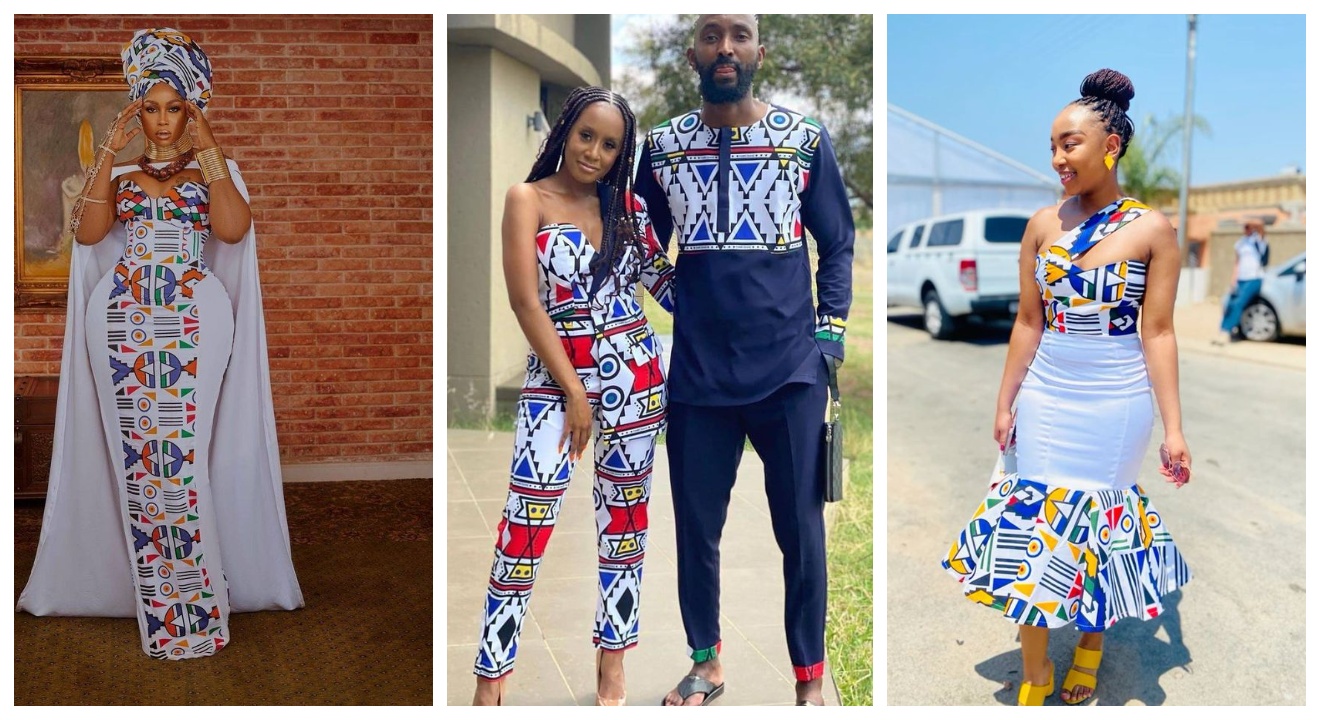
Introduction
Ndebele dresses hold a special place in South African culture, preserving and celebrating the rich heritage of the Ndebele people. These dresses are not merely garments; they are a symbolic representation of their cultural identity and serve as a form of artistic expression and storytelling.
What are Ndebele dresses?
Ndebele dresses are traditional attire worn by the Ndebele people, an ethnic group in South Africa known for their vibrant and intricate beadwork. These dresses are characterized by bold geometric patterns, vibrant colors, and intricate beadwork that adorns every inch of the fabric. The design of the dresses reflects the Ndebele people’s cultural beliefs, social status, and personal stories.
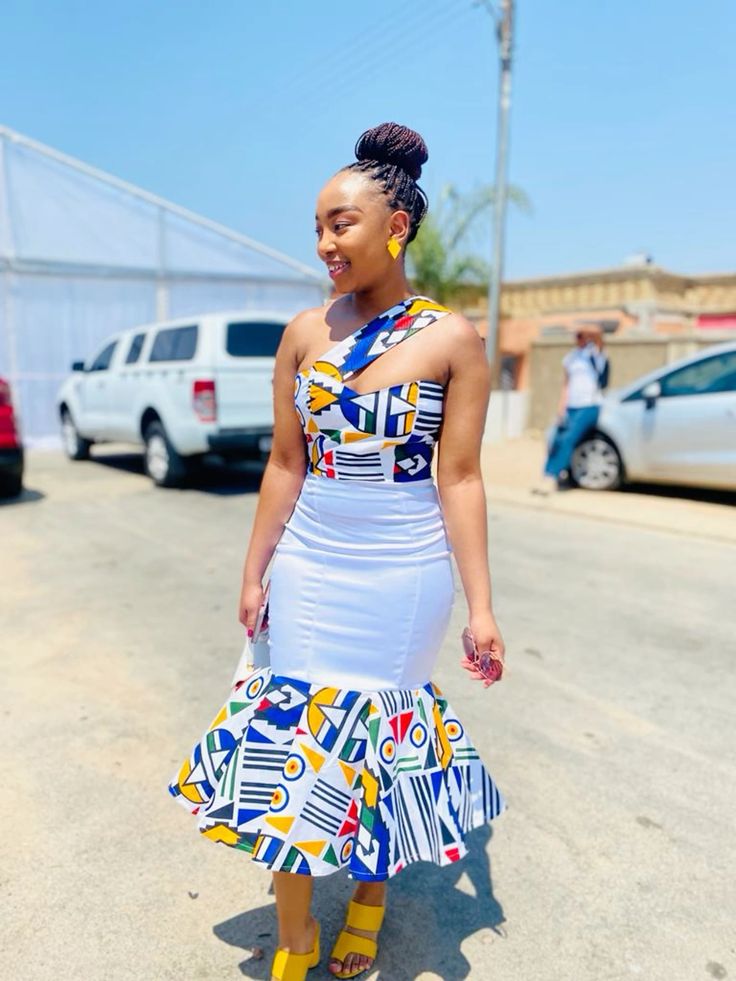
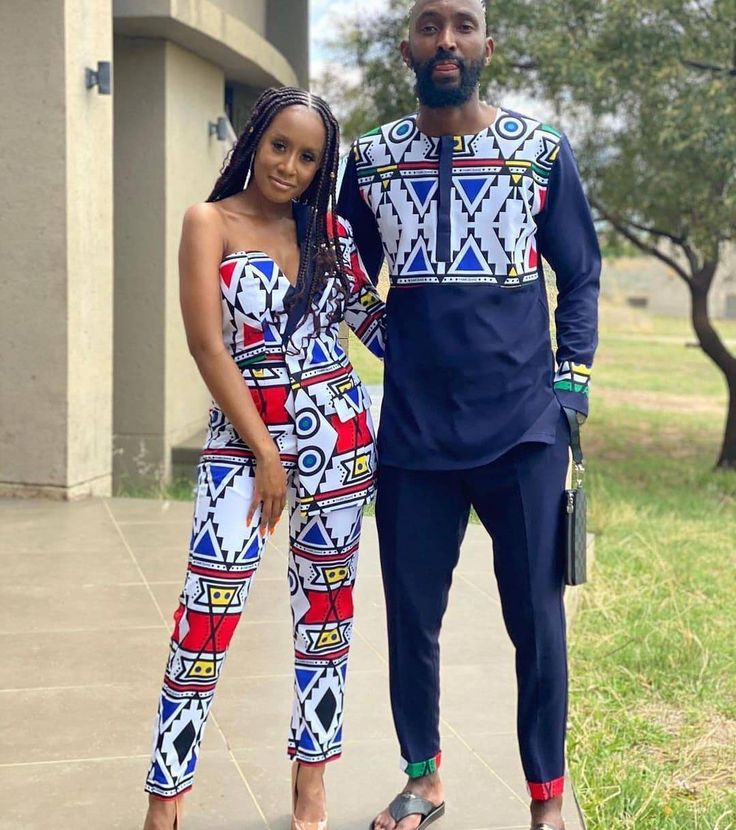
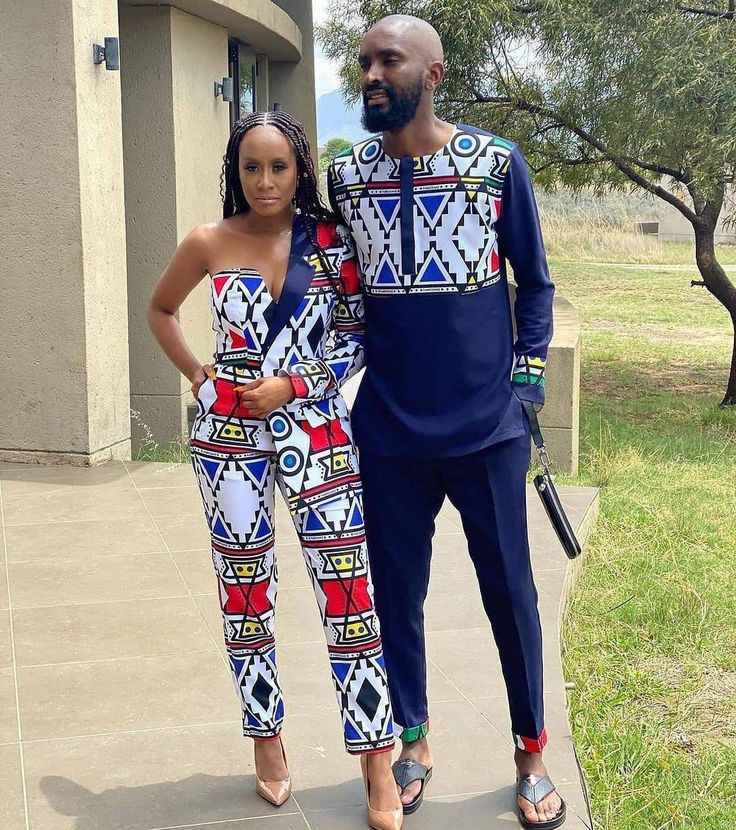
Significance of Ndebele dresses in preserving cultural heritage
Ndebele dresses play a crucial role in preserving and celebrating the cultural heritage of the Ndebele people. Through the intricate designs and beadwork, these dresses showcase the Ndebele people’s cultural traditions and values. They serve as a visual representation of their history, passed down from generation to generation, ensuring that their rich heritage is not forgotten.
These dresses also hold immense social significance. They are worn during important ceremonies and celebrations, such as weddings and initiation rites, where they symbolize cultural pride and identity. By adorning these dresses, the Ndebele people express their connection to their roots and reaffirm their sense of belonging.
In conclusion, Ndebele dresses are far more than just pieces of clothing. They are powerful symbols that preserve and celebrate the cultural heritage of the Ndebele people. They contribute to the richness and diversity of South African culture, showcasing the artistry, traditions, and values of the Ndebele community.
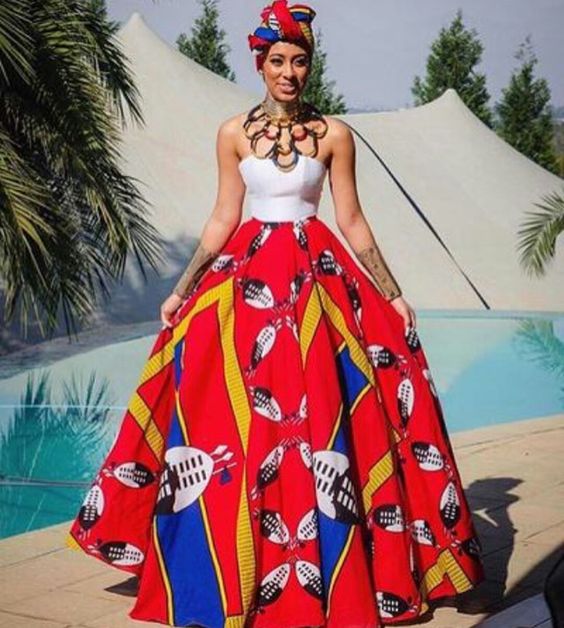
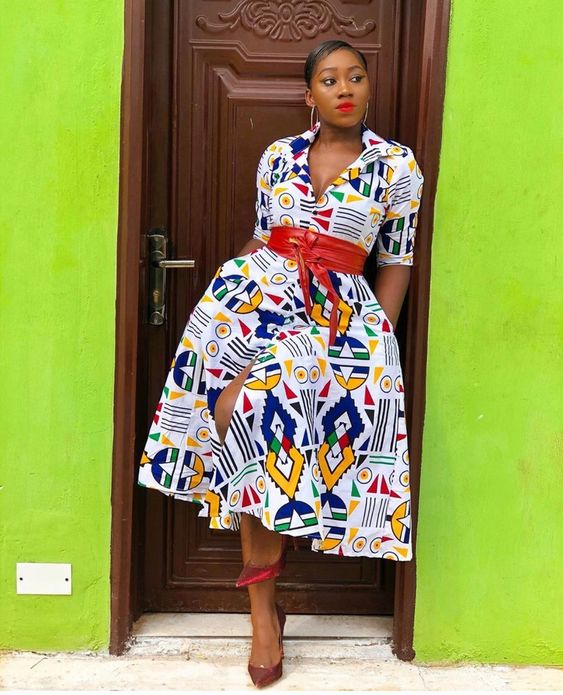
Traditional Ndebele Dresses
Designs and Patterns of Traditional Ndebele Dresses
Traditional Ndebele dresses are known for their bold and vibrant designs. These dresses feature intricate geometric patterns that are meticulously hand-painted or embroidered onto the fabric. The patterns often symbolize important elements of Ndebele culture, such as fertility, marriage, and spirituality. Each pattern tells a story and holds deep cultural significance. The use of vibrant colors, such as red, yellow, blue, and green, further enhances the visual impact of these dresses, making them truly striking and unique.
Materials Used in Creating Traditional Ndebele Dresses
Traditionally, Ndebele dresses are made using fabric made from plant fibers, such as cotton, or animal skins. The fabric is typically handwoven and then transformed into dresses using traditional sewing techniques. The intricate beadwork that adorns the dresses is created using small glass beads that are carefully stitched onto the fabric. The use of beads adds texture and dimension to the dresses, making them even more visually captivating.
Ndebele dresses are not only garments but also works of art that demonstrate the creativity and skill of the Ndebele people. By preserving and wearing these dresses, the Ndebele community continues to celebrate and honor their cultural heritage, ensuring that their traditions and values are passed down to future generations.
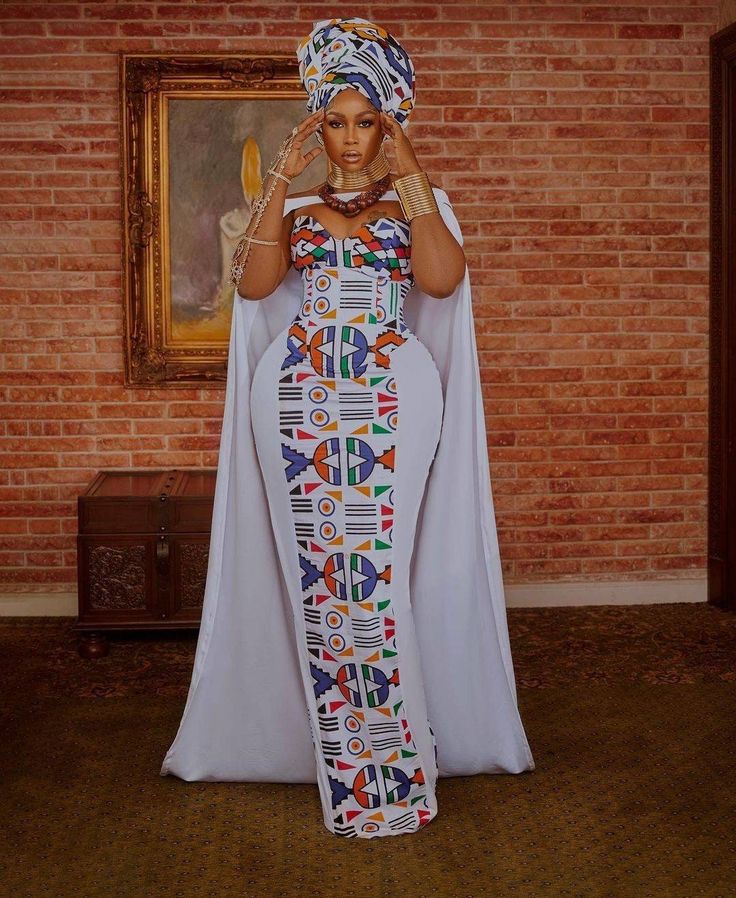
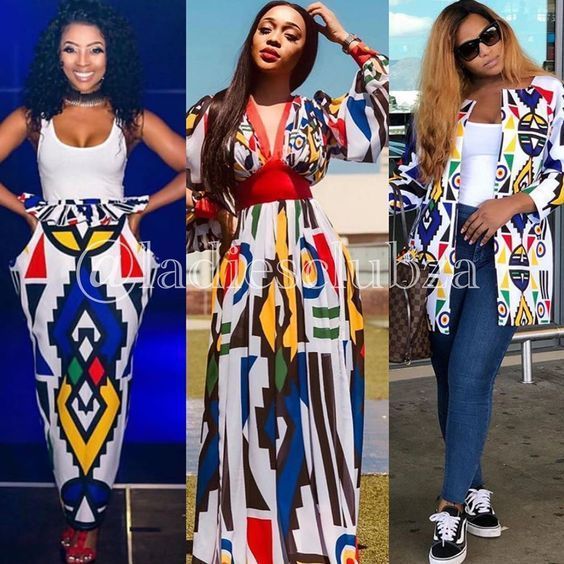
Modern Interpretations of Ndebele Dresses
Contemporary adaptations of Ndebele dress styles
In today’s fashion landscape, traditional Ndebele dresses have undergone an evolution to meet the demands of modern aesthetics. Designers have taken inspiration from the bold and vibrant designs of Ndebele culture and incorporated them into contemporary dress styles. These adaptations pay homage to the rich heritage of the Ndebele people while appealing to a wider audience.
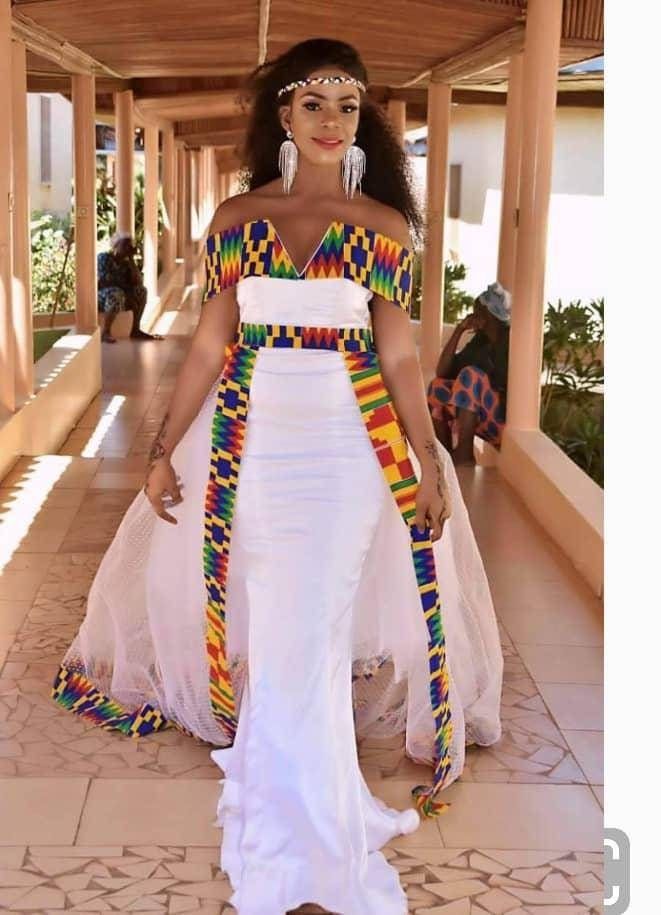
Incorporation of Ndebele dress elements in modern fashion
Beyond traditional Ndebele dresses, elements from Ndebele culture have found their way into the modern fashion industry. From bold geometric patterns to vibrant color combinations, designers are incorporating these elements into their collections. This infusion of Ndebele design elements adds a unique and eye-catching touch to modern fashion, providing an avenue for the celebration and preservation of Ndebele cultural heritage.
By embracing these modern interpretations and incorporating Ndebele dress elements, designers and fashion enthusiasts are ensuring that the cultural legacy of the Ndebele people is not only preserved but celebrated in a contemporary and relevant way.
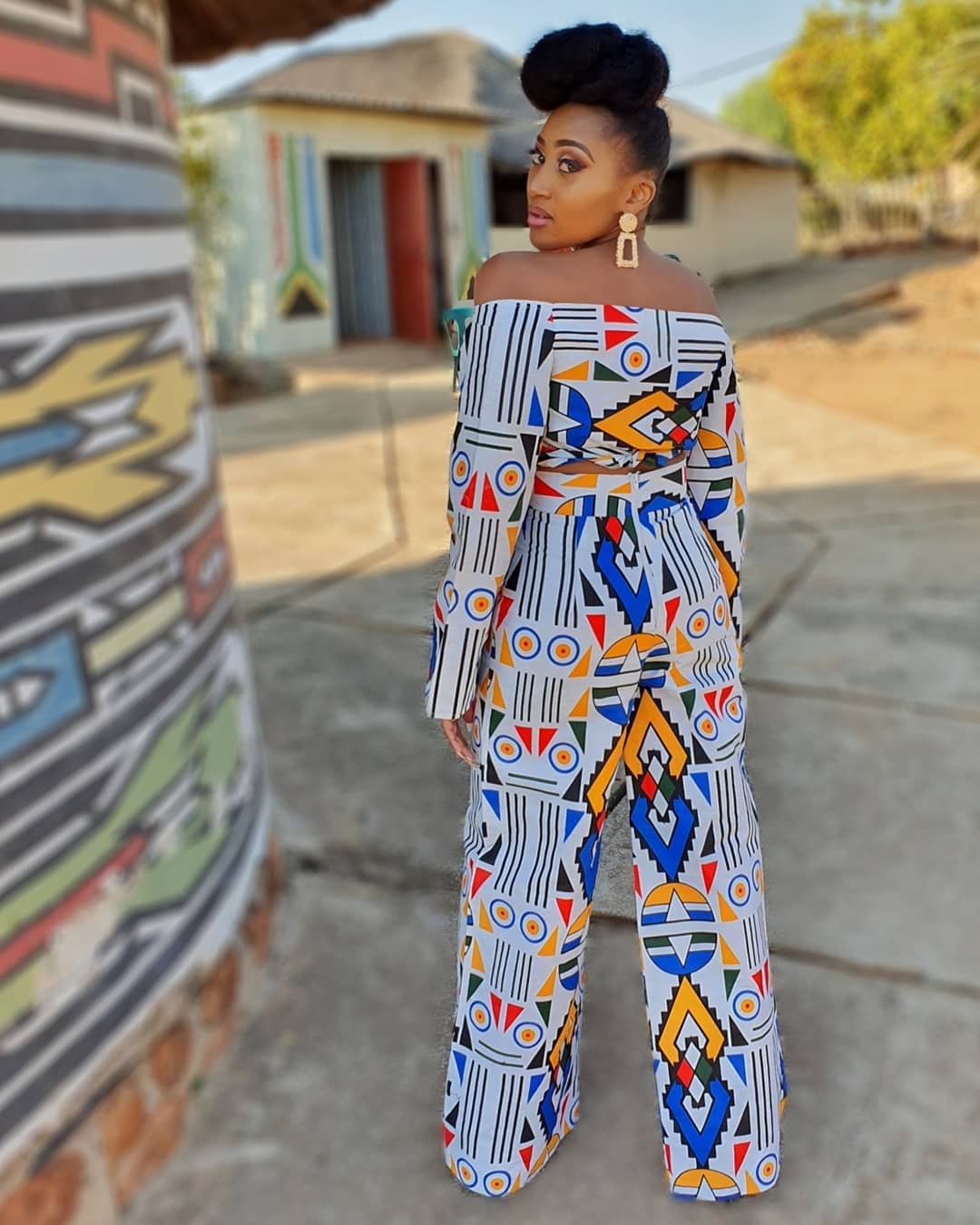
Symbolism and Meaning of Ndebele Dresses
Ndebele dresses are more than just garments; they are powerful symbols of cultural identity and heritage. These dresses hold immense value in preserving and celebrating the rich traditions and customs of the Ndebele people. Here, we will explore how Ndebele dresses represent cultural identity and how they embrace ancestral traditions and values.
Representation of cultural identity through Ndebele dresses
Ndebele dresses are known for their bold colors, intricate geometric patterns, and vibrant beadwork. Each element of these dresses carries symbolic meaning and tells a story about the Ndebele culture. The patterns and colors used often represent specific aspects of life, such as fertility, marriage, and social status. By wearing Ndebele dresses, individuals proudly showcase their heritage and connect with their cultural roots.
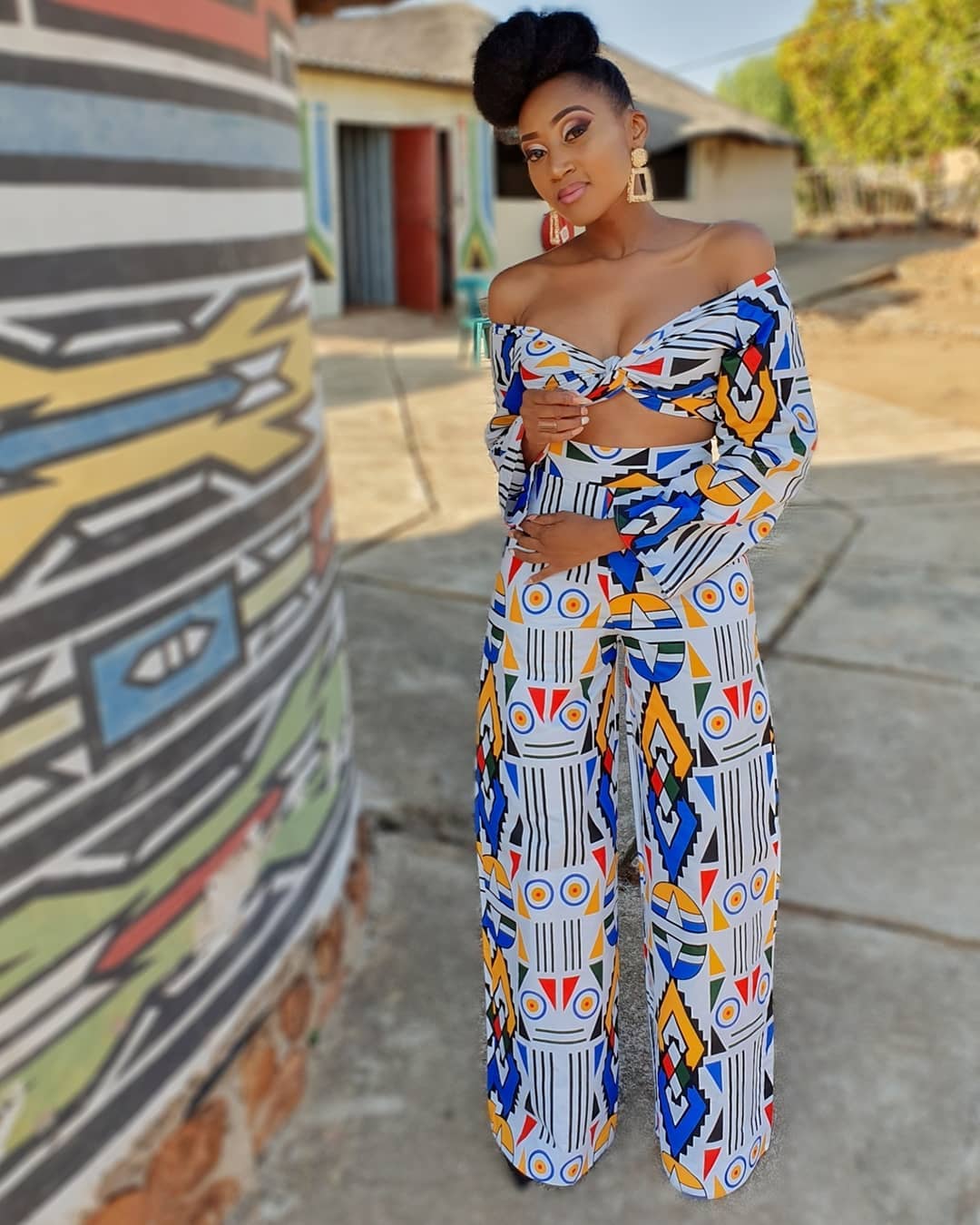
Embracing ancestral traditions and values through dress
Ndebele dresses are an embodiment of ancestral traditions and values passed down through generations. The art of creating these dresses involves meticulous handwork and attention to detail, with techniques that have been practiced for centuries. By wearing Ndebele dresses, individuals honor their ancestors and keep the cultural traditions alive. These dresses serve as a reminder of the values and principles that guide the Ndebele community, such as unity, respect, and creativity.
In conclusion, Ndebele dresses play a vital role in preserving and celebrating the cultural heritage of the Ndebele people. They represent cultural identity and serve as a tangible connection to ancestral traditions and values. Through these dresses, the Ndebele community can proudly showcase their unique heritage while embracing the beauty and significance of their cultural legacy.
Preservation of Cultural Heritage
Ndebele dresses hold immense significance in preserving and celebrating the cultural heritage of the Ndebele people. These dresses go beyond mere garments; they are powerful symbols of cultural identity and heritage.
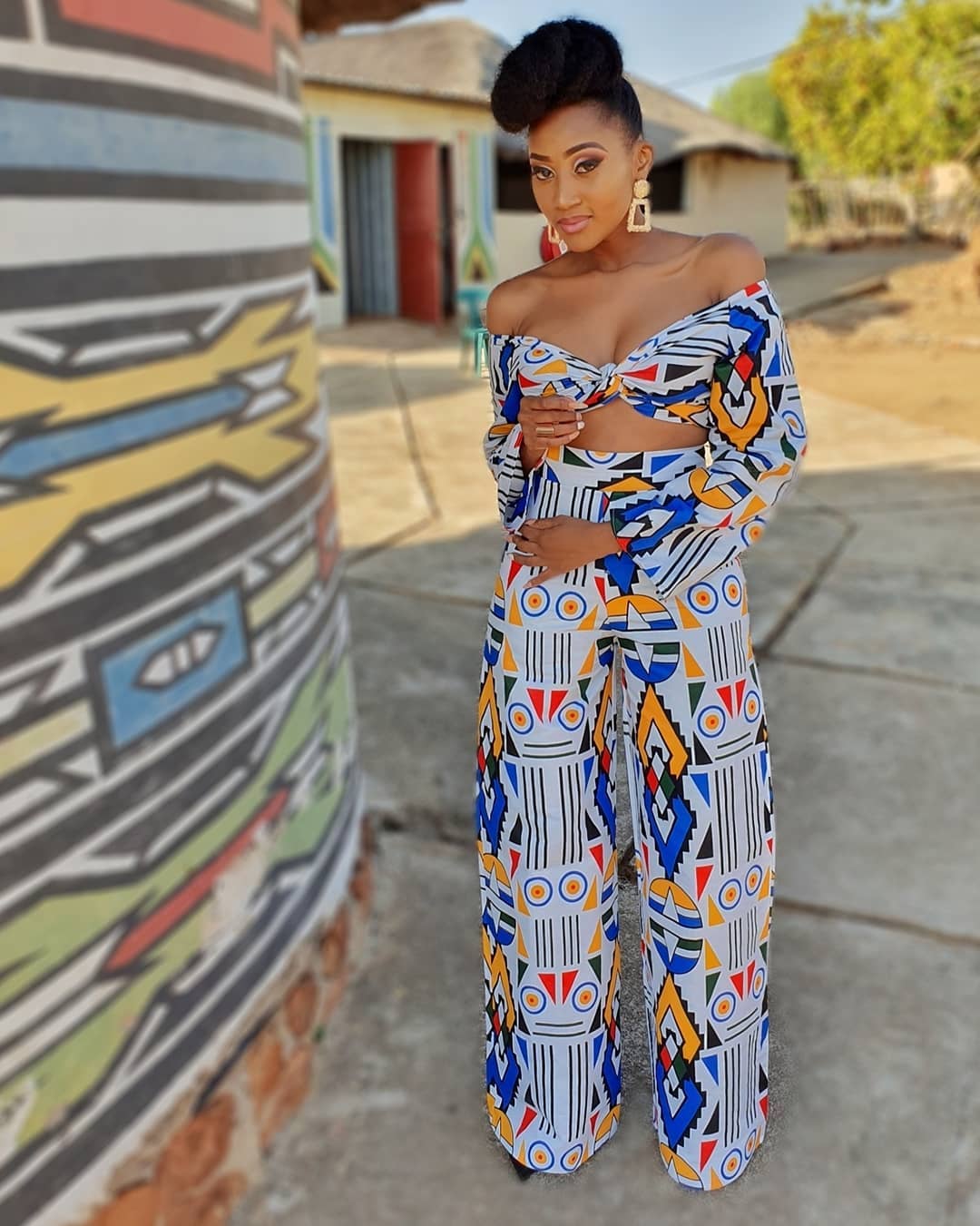
Role of Ndebele dresses in cultural preservation
Ndebele dresses are known for their bold colors, intricate geometric patterns, and vibrant beadwork. Each element of these dresses carries symbolic meaning and tells a story about the Ndebele culture. The patterns and colors used often represent specific aspects of life, such as fertility, marriage, and social status. By wearing Ndebele dresses, individuals proudly showcase their heritage and connect with their cultural roots. It is through the preservation of these cultural artifacts that the traditions and customs of the Ndebele people are kept alive.
Impact of Ndebele dress revival on community pride and identity
The revival of Ndebele dresses has had a profound impact on community pride and identity. As these dresses gain recognition and appreciation beyond the Ndebele community, they serve as a source of pride for the people. The intricate craftsmanship and vibrant colors reflect the creativity and craftsmanship of the Ndebele people. By embracing and celebrating their cultural heritage through these dresses, the Ndebele community strengthens its sense of identity, fosters unity, and preserves its unique traditions for future generations.
In conclusion, Ndebele dresses play a crucial role in preserving and celebrating the cultural heritage of the Ndebele people. They serve as tangible connections to ancestral traditions and values, allowing individuals to proudly showcase their unique heritage while embracing the beauty and significance of their cultural legacy.
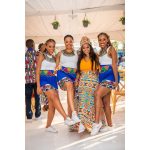







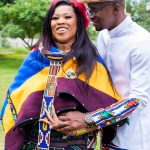



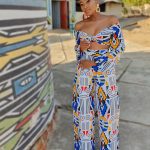
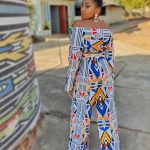
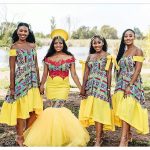
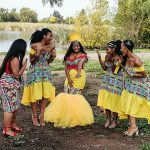
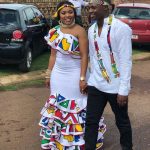
Comments are closed.